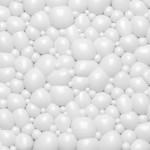 Shingles pain, also known as post-herpetic neuralgia and varicella-zoster (chicken pox virus, in the herpes virus class) infection, is residual pain that persists after an acute bout of shingles. Shingles occurs when the chicken pox virus, usually sustained earlier in life, “re-activates.” After initial infection, the virus lies dormant in a (sensory) nerve root anywhere on the body, held in check by a healthy immune system. Any stress to the body, such as physical illness or emotional shock, can temporarily lower immunity. This allows the virus to escape control, travel back down the nerve, and appear at the skin. It is exceedingly common: almost 50 percent of people who reach the age of 60 will suffer a case.
Shingles pain, also known as post-herpetic neuralgia and varicella-zoster (chicken pox virus, in the herpes virus class) infection, is residual pain that persists after an acute bout of shingles. Shingles occurs when the chicken pox virus, usually sustained earlier in life, “re-activates.” After initial infection, the virus lies dormant in a (sensory) nerve root anywhere on the body, held in check by a healthy immune system. Any stress to the body, such as physical illness or emotional shock, can temporarily lower immunity. This allows the virus to escape control, travel back down the nerve, and appear at the skin. It is exceedingly common: almost 50 percent of people who reach the age of 60 will suffer a case.
Most cases involve presentations on the skin: typically, little water blisters accompanied by severe burning pain. More complicated cases occur at the eye and spine, and must be aggressively medically managed from the beginning.
The initial infection usually resolves after about 4 to 7 days, but the nerve-mediated (neurological) pain may persist for weeks to months, and vary from mild to severe. Sometimes, sensory loss can occur in the affected area.
Western medicine prevention/treatments for shingles are essential to decrease the incidence/severity of post-herpetic neuralgia. Anti-viral medication started early can significantly decrease the chances of persistent pain. There is also a vaccine currently available (Zostavax) that helps prevent the occurrence of shingles in people over 60 by 50 to 70 percent. It is currently recommended for those aged 50 years and over.
Persistent pain is conventionally treated with medications usually used for nerve-mediated pain, including medications in the anti-seizure and anti depressant classes, along with opiates, if needed.[1]
Neurological Scalp Acupuncture can be especially effective helping manage shingles and other nerve-mediated pains. The addition of body acupuncture (Craig PENS protocol) can bring even more substantial relief; there are even two special thumb acupuncture points specifically indicated for shingles pain and related “Heat conditions”. Chinese Herbal Medicine may be considered for difficult cases.[2 3 4]
Neurological Conditions Testimonials
Learn more about Shingles
X
These brief overviews of conditions represent distillations of basic and current medical reviews from the following sources:
[1] Conventional Medical Sources
“Harrison’s Principles of Internal Medicine: Volumes 1 and 2, 18th Edition”. Dan Longo Anthony Fauci, Dennis Kasper, Stephen Hauser, J. Jameson, Joseph Loscalzo. McGraw-Hill Professional; (July, 2011)
Medscape eMedicine Physician’s online resource. Various review articles:
Complex Regional Pain Syndromes Treatment & Management.
Anthony H Wheeler MD. Medscape Reference Chief Editor: Stephen A Beman, MD PhD MBA.
Essential Tremor
Deborah A Burke, MD Clinician, Sub-Investigator, Movement Disorder/Parkinson’s Disease Center, University of South Florida College of Medicine; Investigator, Physician, Roskamp Institute Memory Clinic
Bell Palsy
Danette C Taylor, DO, MS Clinical Assistant Professor, Department of Neurology and Ophthalmology, Michigan State University College of Osteopathic Medicine; Senior Staff Neurologist, Henry Ford Health Systems
Meniere Disease (Idiopathic Endolymphatic Hydrops)
John C Li, MD Private Practice in Otology and Neurology; Medical Director, Balance Center
Restless Legs Syndrome
Ali M Bozorg, MD Assistant Professor, Comprehensive Epilepsy Program, Departments of Neurology and Neurosurgery, University of South Florida College of Medicine
Postherpetic Neuralgia
W Alvin McElveen, MD Director, Stroke Unit, Lakewood Ranch Medical Center; Neurologist, Manatee Memorial Hospital
Sleep disorders
Roy H Lubit, MD, PhD Assistant Clinical Professor, Mount Sinai School of Medicine; Clinical Faculty, Department of Child Psychiatry, New York University School of Medicine; Private Practice
Tinnitus
Aaron G Benson, MD Director, Ohio Hearing and Balance Institute, Maumee, Ohio; Consulting Staff, Toledo Ear, Nose and Throat, Inc
Multiple Sclerosis
Christopher Luzzio, MD Clinical Assistant Professor, Department of Neurology, University of Wisconsin at Madison School of Medicine and Public Health
Parkinson Disease
Robert A Hauser, MD, MBA Professor of Neurology, Molecular Pharmacology and Physiology, Director, USF Parkinson’s Disease and Movement Disorders Center, National Parkinson Foundation Center of Excellence, Byrd Institute, Clinical Chair, Signature Interdisciplinary Program in Neuroscience, University of South Florida College of Medicine
Tourette Syndrome and Tic Disorders
William C Robertson Jr, MD Professor, Departments of Neurology, Pediatrics, and Family Practice, Clinical Title Series, University of Kentucky College of Medicine
Post Concussive Syndrome
Roy H Lubit, MD, PhD Assistant Clinical Professor, Mount Sinai School of Medicine; Clinical Faculty, Department of Child Psychiatry, New York University School of Medicine; Private Practice
Traumatic Brain Injury
Segun T Dawodu, MD, JD, MBA, LLM, FAAPMR, FAANEM Associate Professor of Rehabilitation Medicine and Interventional Pain Medicine, Albany Medical College
Dizziness, Vertigo, Imbalance
Hesham M Samy, MD, PhD Head of Hearing and Balance Unit, Otolaryngology Department, Minia University, Egypt
CNS Causes of Vertigo
Marcelo B Antunes, MD Resident Physician, Department of Otorhinolaryngology-Head and Neck Surgery, University of Pennsylvania Health System
Communication Disorders
Renee S Melfi, MD Consulting Staff, Orthopaedic Associates of Central New York
[2], [3]
- “Acupuncture Energetics: A Clinical Approach for Physicians”. Joseph M. Helms. Medical Acupuncture Publishers; 1st Edition. (1995)
- “Foundations of Chinese Medicine: A Comprehensive Text for Acupuncturists and Herbalists”. Giovanni Maciocia. Churchill Livingstone; 2 Edition (July, 2005).
- “Diagnosis in Chinese Medicine: A Comprehensive Guide”. Giovanni Maciocia. Churchill Livingstone; 1st Edition (January, 2004).
Chinese Scalp Acupuncture”. Jason Ji-shun Hao, Linda Ling-zhi Hao and Honora Lee Wolfe. Blue Poppy Press; 1st Edition. (November, 2011)
